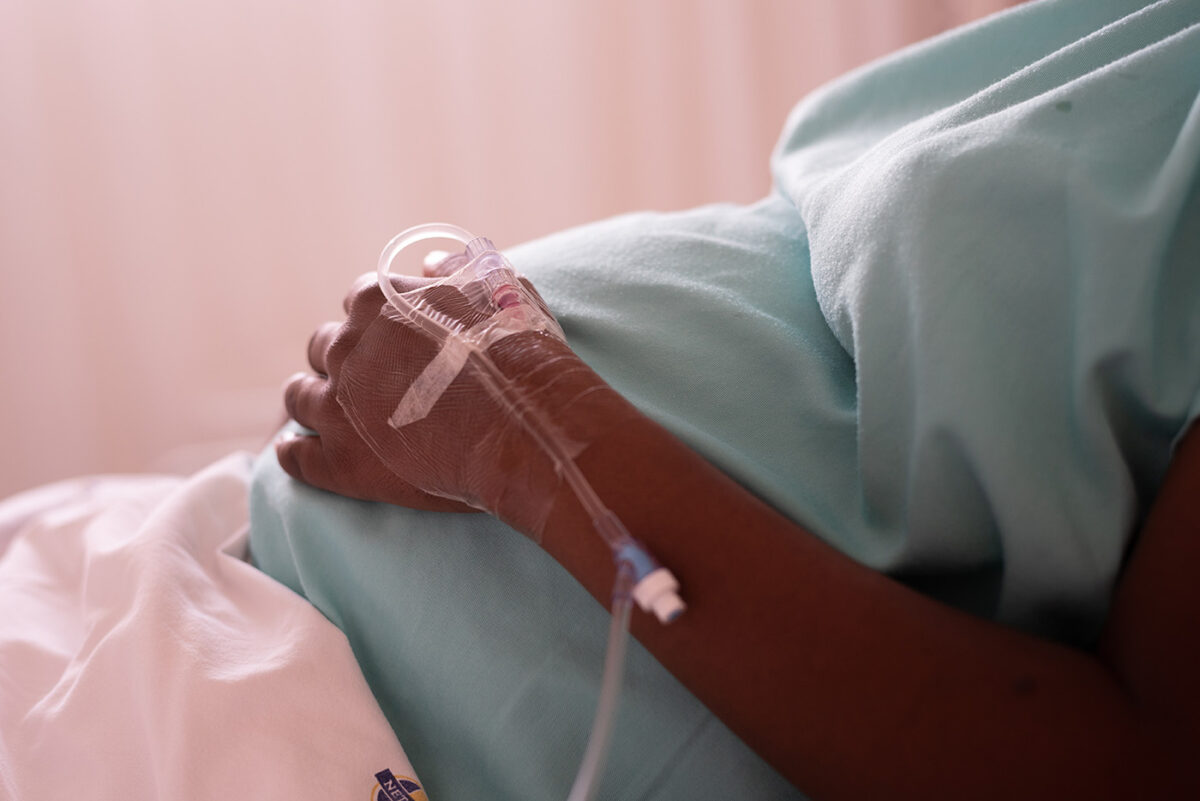
Author
Jennifer Wessel, JD, MPH
Senior Policy Analyst and Data Privacy Officer
501-526-2244
JBWessel@achi.net
UPDATE:
On Tuesday, July 26, the Centers for Medicare and Medicaid Services (CMS) announced its Maternity Care Action Plan, which will support implementation of the Biden-Harris administration’s blueprint for addressing the nation’s maternal health crisis. The plan addresses the previously announced “birthing-friendly” hospital designation as well as coverage and access to care, data, quality of care, the maternity care workforce, and social supports (e.g., housing vouchers and nutrition services).
According to a CMS news release, “the action plan takes a holistic and coordinated approach across CMS to improve health outcomes and reduce inequities for people during pregnancy, childbirth, and the postpartum period.”
Original post (published May 6, 2022):
A new “birthing-friendly” hospital designation is a key feature of a proposed rule issued by the Centers for Medicare and Medicaid Services (CMS). According to CMS, the designation would “assist consumers in choosing hospitals that have demonstrated a commitment to maternal health through implementation of best practices that advance health care quality, safety, and equity for pregnant and postpartum patients.”
CMS issued the annual Medicare hospital inpatient prospective payment system (IPPS) and long-term care hospital (LTCH) prospective payment system (PPS) proposed rule on April 18. In addition to payment updates, the proposed rule addresses maternal health and proposes to establish a publicly reported hospital designation based on the quality and safety of maternity care.
Under this proposal, CMS would initially designate hospitals based on their attestations that they have satisfied the requirements of the Hospital Inpatient Quality Reporting (IQR) Program’s Maternal Morbidity Structural Measure, which was finalized in the fiscal year 2022 IPPS and LTCH PPS final rule. The measure is used to determine whether a hospital participates in a state or national perinatal quality improvement (QI) collaborative and implements certain patient safety practices through the collaborative.
Although the measure doesn’t directly address the factors contributing to maternal mortality, CMS suggests that participation in QI collaboratives has been effective in improving the management of conditions that may lead to severe maternal morbidity or mortality. Additionally, hospital implementation of related QI efforts has been associated with a reduction in maternal health disparities.
In Arkansas, Act 1032 of 2019 gave the Arkansas Department of Health authority to establish the Arkansas Maternal and Perinatal Outcomes Quality Review Committee (AMPOQRC) to review data on births and develop strategies to improve birth outcomes. The Arkansas Perinatal Regionalization Committee — which provided recommendations on classifying birthing hospitals according to level of care — assumed responsibility for the requirements set forth by the legislation. Though Arkansas has yet to develop a QI collaborative to meet the CMS definition, the AMPOQRC has established next steps to support development of a collaborative. These steps include setting an agenda for quality improvement initiatives, aligning state and local efforts, standardizing the verification process for birthing hospitals, and ensuring transparency in efforts and results. Hospitals may also participate in a national collaborative, such as the Department of Health and Human Services Perinatal Improvement Collaborative, to satisfy this requirement of the measure. To date, no hospitals in Arkansas are participating in HHS’ collaborative.
Arkansas has other initiatives that aim to address maternal and child health outcomes that are related to but different from the federal priorities reflected in the proposed rule. Arkansas Health and Opportunity for Me, or ARHOME, the state’s version of Medicaid expansion, proposes to target certain populations under what would be known as a Life360 HOME. In the potential Maternal Life360 HOME model, which is still under review by CMS, hospitals that offer labor and delivery services would employ staff to take on the role of peer counselors and home visitors. These individuals would provide support to a mother in her home during pregnancy and for up to two years after the child is born. Several home visiting programs are already operating in Arkansas. Two of the programs, Following Baby Back Home and Healthy Families America, have been evaluated by researchers at the University of Arkansas for Medical Sciences and ACHI. A report on the Following Baby Back Home evaluation is available on our website.
Efforts to promote breastfeeding have been a priority for Healthy Active Arkansas, a statewide initiative of public and private partners that seeks to increase the number of Arkansans who are at a healthy weight. In 2018, Healthy Active Arkansas and Baptist Health hosted a summit that brought together representatives from every delivery hospital in the state for support in attaining designation as “Baby-Friendly” hospitals. The designation is bestowed by Baby-Friendly USA, the accrediting body for the Baby-Friendly Hospital Initiative, a global program that encourages the implementation of the Ten Steps to Successful Breastfeeding and the International Code of Marketing of Breast-milk Substitutes. For more information on this program, and a discussion of the federal requirement for insurers to cover breastfeeding equipment and supplies, see our recent blog post.
Hospitals will submit their data for the Maternal Morbidity Structural Measure for first time this month. CMS will post the data on the Care Compare website this fall; initial results for the birthing-friendly designation will be posted in fall 2023. Additional measures are expected to evolve over time.






